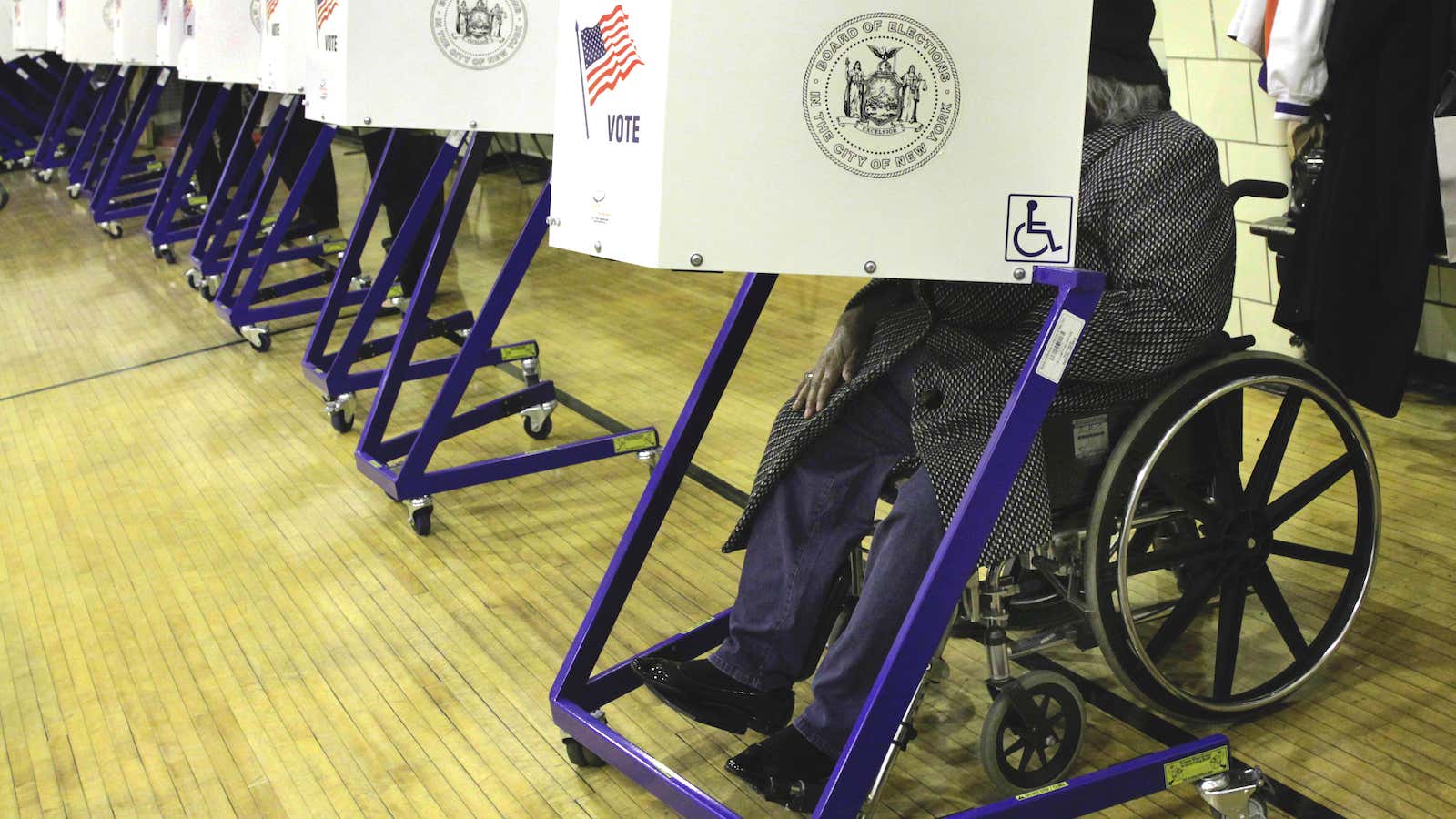There is a lot of talk about groups of voters who will be crucial to electing the next US president. Many of these unnoticed or unappreciated voting groups—white women voters, working-class voters, Black voters, Latinx voters, and more—share many experiences that unite them. But people with disabilities have unique needs, and are often left out of the diversity conversations entirely.
If potential candidates want to strengthen their campaigns, they should start listening to us.
In 2016, one out of six people who were eligible to vote in the US had disabilities, ranging from cerebral palsy and autism to hearing loss, learning disorders, and ADHD. That’s a total of 35.4 million voters. But voter turnout for people with disabilities was very low—six percentage points lower than that of people without disabilities, in fact.
Despite misconceptions, it is not because we cannot vote. It is because we do not feel our votes matter. When you combine our populace with our loved ones and the people who care about the issues we care about—such as direct-support professionals—we are a powerful and largely untapped voting bloc. We could be a key voice in determining the 2020 election—if we feel compelled to go to the polls.
I am a Democratic voter from Pennsylvania, which is a swing state. I also happen to have intellectual and developmental disabilities (I/DD) and developmental delays. Because I and many of my peers depend on government systems to help us access the services we need to live independent and fulfilling lives, the stakes of this election are very high for us. But somehow, people with disabilities are missing from the political conversation.
The last time I voted was for Barack Obama in 2012, and I felt good about that; I even got an opportunity to sit on president Obama’s Special Committee for People with Disabilities. However, I did not vote in 2016 because I felt ignored by politicians. And I’m not alone in that feeling.
I’m planning to vote in the 2020 primaries and general election because I want to make my voice heard. And I’ve been encouraged that some candidates, namely the frontrunners, have made efforts to better engage with people with disabilities. Elizabeth Warren has introduced legislation to help borrowers with disabilities with their student loans. Bernie Sanders has expressed concern over the civil rights of people with disabilities. And Pete Buttigieg and Kirsten Gillibrand have pledged to appoint a person with disabilities to their administration.
But it’s still barely scratching the surface. Often, the only time I see someone with a disability being engaged by a candidate is when they are being used for a good photo op. We don’t want to be treated as tokens. We need candidates who understand us. We need candidates who talk about the issues that impact us. We need candidates who understand the challenges that exist in the disability-services system. And we need candidates who engage in meaningful ways with people with disabilities of all kinds, and not forget about us when the election is over.
Like any group of people, the issues we face individually are diverse and unique. But if you take a step back, what we want is not so different from what is already being discussed: affordable housing and health care, jobs with good pay and good benefits, the ability to stay safe and secure, and the opportunity to build fulfilling lives with our families and friends.
As someone with I/DD, however, the path to those things looks a little different than it does for people without disabilities. I need to hear candidates talking to me about solutions that work for me.
I haven’t decided who I am voting for yet. There is still plenty of time for candidates to step up to the plate and take on the many issues that matter to people with disabilities. With a voting block that’s more than 30 million people strong, 2020 is our opportunity to make a difference at the ballot box.
